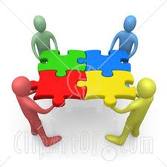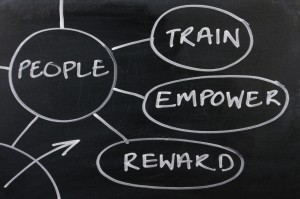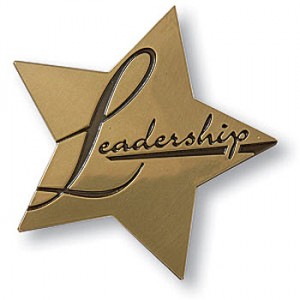Teams are organizational groups made up of individuals who function interdependently, coordinating activities to accomplish common goals. Does your organization use work teams, like project management teams, task forces, work units, or standing committees, to accomplish goals? If yes, read on and join a conversation.
Just what makes an excellent team? What do excellent teams have in common? Studies show that regardless of the type of team, eight characteristics were regularly identified.
These Eight Characteristics of Highly Effective Teams include:
- Clear, Elevating Goal

- Results-Driven Structure
- Competent Team Members
- Unified Commitment
- Collaborative Climate
- Standards of Excellence
- External Support and Recognition
- Leadership
Does the team have clear, elevating goals? Are they clear enough to everyone can tell when the performance objective is achieved? Are the goals motivating so that all members believe them to be worthy of their active participation?
Does the team have a structure to support their results-driven goals? Is it a structure that will help the team to accomplish their goals? If the goals of your team focus is on problem-solving, does the structure focus on building trust so that everyone feels free to contribute to the dialogue? If the goals of your team focus is on strategic or tactical work, does the structure provide clarity to everyone knows just what to do and when? Teams have different work content and therefore will need a structure to support their successful achievement of goals.
Are the team members competent, with technical competence to address tasks as well as interpersonal and teamwork skills? Do you have the right number and mix of skill competency to achieve the goals?
Is there a shared commitment to the work group or team? Have you involved team members in all aspects of the work to build a team spirit?
Is there a climate of collaboration within the team? Do team members stay focused on the problem/work? Are they open with each other as they work through tasks? Do they listen to each other? Are they free to take risks? Are they willing to compensate for each other to achieve the best possible results?
Does the organization or the team itself have a standard of excellence identified? Are they clear and concrete, easy to understand by all members? Are they useful in applying some pressure for members to perform at the highest levels?
Does the organization support the work and accomplishments of the team? Is the team supported with funding, equipment and supplies to accomplish their work? Are teams rewarded for accomplishing difficult assignments? Recognized for their hard work?
Does the team function with the guidance of an effective, principled leader? Does the leader help the team to understand problems that confront the team? Does the leader help the team become a cohesive unit, set high performance standards and facilitate achievement of the work goals? Does the leader address stressful issues by providing clear goals, distribution of tasks and strategies for accomplishing the tasks? Does the leader take care in matching skills of members to the roles that need to be done? Does the leader monitor feedback and progress? Is the leader adaptable to environmental changes, internal and external?
Share your reflections and let’s join in a lively discussion on these eight characteristics of Team Excellence.
Links of interest related to Team Leadership:
Hill’s Model for Effective Team Leadership: 7 minute video
Team Leadership: .PDF document of the Team Leadership Model, by Frank LaFasto and Carl Larson




Thanks for the article!
A clear goal is important, but it is truly the collaboration and process that leaders should focus on to be most productive…